Comprehensive Guide to Garden Maintenance in Blackfriars
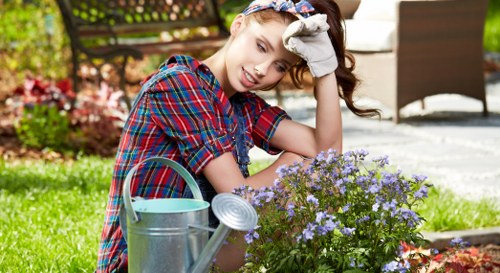
Maintaining a beautiful garden in Blackfriars requires a combination of regular upkeep, understanding of local climate conditions, and the right selection of plants. Whether you're a seasoned gardener or a novice, proper garden maintenance ensures your outdoor space remains vibrant and healthy throughout the year.
Blackfriars, known for its picturesque landscapes and historic charm, offers a unique environment for gardeners. The area experiences a temperate climate, which is ideal for a wide variety of plants. However, local factors such as urban pollution and limited space can pose challenges to garden maintenance.
To achieve a thriving garden in Blackfriars, it's essential to develop a maintenance routine that addresses these specific conditions. This includes regular pruning, pest control, soil management, and seasonal planting strategies.
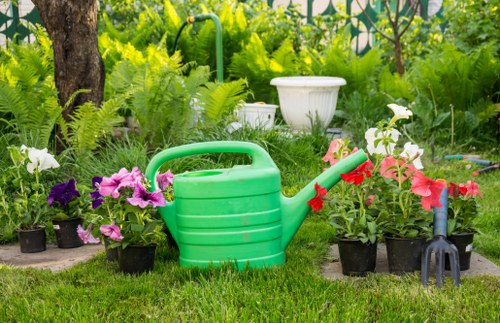
Essential Garden Maintenance Tips
Effective garden maintenance involves several key practices that contribute to the overall health and aesthetics of your garden. Implementing these tips can help you maintain a lush and inviting outdoor space.
1. Regular Pruning: Pruning is vital for promoting healthy plant growth. It helps remove dead or diseased branches, encourages new growth, and maintains the desired shape of your plants.
2. Soil Health: Healthy soil is the foundation of a vibrant garden. Regularly test your soil to ensure it has the right balance of nutrients. Incorporate organic matter such as compost to improve soil structure and fertility.
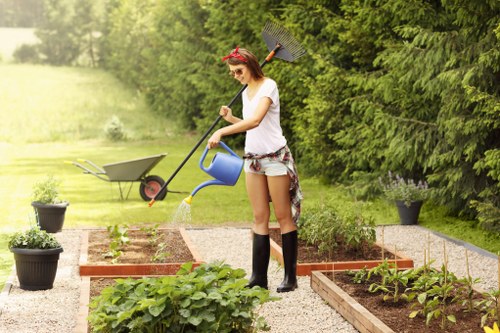
Pest and Disease Management
Protecting your garden from pests and diseases is crucial for maintaining plant health. Integrated Pest Management (IPM) strategies can help you control unwanted pests while minimizing environmental impact.
Identifying pests early: Regularly inspect your plants for signs of pests or disease. Early detection allows for timely intervention, preventing minor issues from becoming major problems.
Natural Remedies: Utilize natural pest control methods such as introducing beneficial insects, using neem oil, or applying homemade sprays to deter pests without harming your plants.
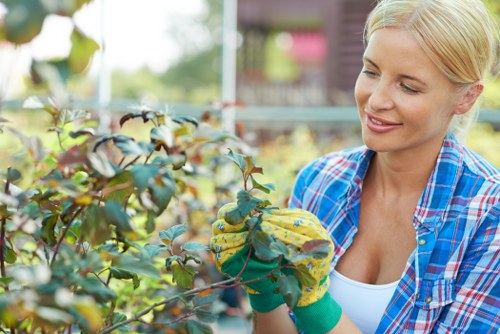
Seasonal Garden Care
Each season brings its own set of challenges and opportunities for garden maintenance. Adapting your care routine to the changing seasons ensures your garden remains resilient and beautiful year-round.
- Spring: Focus on planting new seeds, pruning shrubs, and preparing beds for the growing season.
- Summer: Maintain proper watering schedules, manage weed growth, and provide shade for delicate plants.
- Autumn: Clear fallen leaves, prepare plants for winter, and plant bulbs for spring blooms.
- Winter: Protect sensitive plants from frost, plan for next year's garden, and perform necessary repairs.
Understanding the specific needs of your garden during each season helps in maintaining its health and appearance.
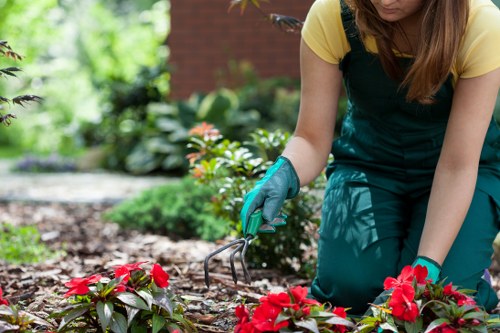
Choosing the Right Plants
Selecting plants that thrive in Blackfriars' climate is essential for a sustainable garden. Native plants are particularly well-suited, as they are adapted to the local environment and require less maintenance.
Benefits of Native Plants: Native species typically have lower maintenance requirements, are more resistant to local pests and diseases, and support local wildlife such as bees and butterflies.
Considerations for Plant Selection: When choosing plants, consider factors like sunlight exposure, soil type, and space availability. Mix perennials and annuals to ensure continuous blooms and interest throughout the year.
Mulching: Applying mulch to your garden beds helps conserve moisture, suppress weeds, and regulate soil temperature. Organic mulches like bark or straw also add nutrients to the soil as they decompose.
Irrigation Systems: Installing an efficient irrigation system can save time and water. Consider drip irrigation or soaker hoses to deliver water directly to the plant roots, reducing evaporation and runoff.
Weed Control: Regularly remove weeds to prevent them from competing with your plants for nutrients and water. Hand-pulling and using landscape fabric are effective methods for weed management.
Garden Tools: Investing in quality garden tools can make maintenance tasks easier and more efficient. Essential tools include pruners, spades, hoes, and watering cans.
Tool Maintenance: Keep your garden tools clean and sharp to ensure they function properly and last longer. Regular maintenance includes cleaning, sharpening blades, and oiling handles to prevent rust.
Storage: Store your tools in a dry, organized space to protect them from the elements and reduce the risk of damage.
Composting: Creating a compost pile allows you to recycle kitchen and garden waste into valuable fertilizer. Compost enriches the soil, improving its structure and nutrient content.
Benefits of Composting: Composting reduces waste, lowers greenhouse gas emissions, and provides a sustainable source of nutrients for your plants.
How to Compost: Start by layering green materials (like vegetable scraps) and brown materials (such as leaves) in a compost bin. Turn the pile regularly to aerate it and speed up the decomposition process.
Pruning Techniques: Proper pruning techniques enhance plant health and promote vigorous growth. Use sharp, clean tools and make cuts at the right angle to prevent damage.
Timing: Prune different plants at specific times of the year to ensure optimal growth. For example, many trees are best pruned in late winter or early spring before new growth begins.
Types of Pruning: Learn the various pruning methods, such as thinning, heading, and shaping, to apply the appropriate technique for each plant type.
Lawn Care: Maintaining a healthy lawn involves regular mowing, watering, and fertilizing. Choose grass varieties that are well-suited to Blackfriars' climate for best results.
Watering Practices: Water your lawn deeply but infrequently to encourage deep root growth. Early morning watering reduces evaporation and helps prevent disease.
Fertilization: Apply fertilizer during the growing season to provide essential nutrients. Avoid over-fertilizing, which can lead to excessive growth and increase susceptibility to pests and diseases.
Garden Lighting: Installing outdoor lighting can enhance the beauty of your garden and improve safety. Use a combination of ambient, task, and accent lighting to highlight key features.
Types of Lighting: Solar-powered lights are energy-efficient and easy to install, while LED lights offer long-lasting illumination with minimal maintenance.
Placement: Strategically place lights to highlight pathways, sculptures, and flowering plants, creating a captivating nighttime landscape.
Hardscaping: Incorporating hardscape elements like pathways, patios, and garden walls adds structure and functionality to your garden. Choose materials that complement your garden's aesthetic and withstand local weather conditions.
Benefits of Hardscaping: Hardscape features provide practical benefits such as defining spaces, improving accessibility, and reducing maintenance by minimizing lawn areas.
Maintenance: Regularly inspect and maintain hardscape elements to prevent damage. Repair cracks, reseal surfaces, and clean features to keep them looking their best.
Plant Staking and Support: Providing support for tall or climbing plants helps prevent damage and promotes healthy growth. Use stakes, trellises, or cages to support plants like tomatoes, roses, and vines.
Installation: Install supports early in the growing season to avoid disturbing the plant roots later on. Ensure that supports are sturdy and securely anchored.
Maintenance: Regularly check and adjust supports as plants grow to prevent breakage and ensure proper alignment.
Weed and Pest Prevention: Proactive measures can significantly reduce the occurrence of weeds and pests in your garden. Implement strategies such as mulching, companion planting, and regular monitoring.
Companion Planting: Planting certain species together can deter pests and reduce weed growth. For example, marigolds repel nematodes, and basil attracts beneficial insects that prey on pests.
Natural Predators: Encourage the presence of beneficial insects like ladybugs, lacewings, and predatory beetles to help control pest populations naturally.
Garden Planning: Effective garden planning involves selecting the right plants, arranging them thoughtfully, and considering future growth. Create a layout that maximizes space and enhances the overall design.
Plant Spacing: Allow adequate spacing between plants to ensure proper air circulation and reduce the risk of disease. Follow the recommended spacing guidelines for each plant type.
Design Principles: Incorporate elements like symmetry, color harmony, and focal points to create an aesthetically pleasing garden. Balance form and function to achieve a cohesive design.
Water Conservation: Implementing water-saving techniques is essential for sustainable garden maintenance. Use efficient irrigation methods and select drought-tolerant plants to reduce water usage.
Rainwater Harvesting: Collecting rainwater in barrels or other containers provides a natural and cost-effective water source for your garden.
Drip Irrigation: Drip irrigation systems deliver water directly to the plant roots, minimizing evaporation and runoff while ensuring plants receive adequate moisture.
Comprehensive Garden Maintenance Schedule
- Daily: Inspect plants for signs of pests or disease, water as needed, and remove any dead or wilted flowers.
- Weekly: Mow the lawn, prune overgrown branches, and check irrigation systems for proper function.
- Monthly: Fertilize plants, test soil pH levels, and perform deep cleaning of garden tools.
- Seasonally: Adjust maintenance routines based on seasonal changes, such as planting new bulbs in autumn or installing protective covers in winter.
- Annually: Review the overall garden layout, replace damaged hardscape elements, and plan for next year's planting strategies.
Adhering to a structured maintenance schedule ensures all aspects of your garden receive the attention they need, promoting a healthy and beautiful outdoor space.
Professional Garden Services in Blackfriars
While DIY garden maintenance can be fulfilling, hiring professional garden services in Blackfriars can provide expertise and save you time. Professionals offer a range of services tailored to your garden's specific needs.
- Landscape Design: Professionals can help design a garden layout that maximizes space, enhances aesthetics, and meets your personal preferences.
- Regular Maintenance: Scheduled maintenance services ensure your garden remains in optimal condition with minimal effort on your part.
- Specialized Care: Services such as tree surgery, irrigation installation, and pest control require specialized knowledge and equipment that professionals possess.
Investing in professional garden services can elevate the quality of your garden and provide peace of mind, knowing that your outdoor space is in capable hands.
Contact us today to learn more about our comprehensive garden maintenance services in Blackfriars and let us help you create the garden of your dreams.
